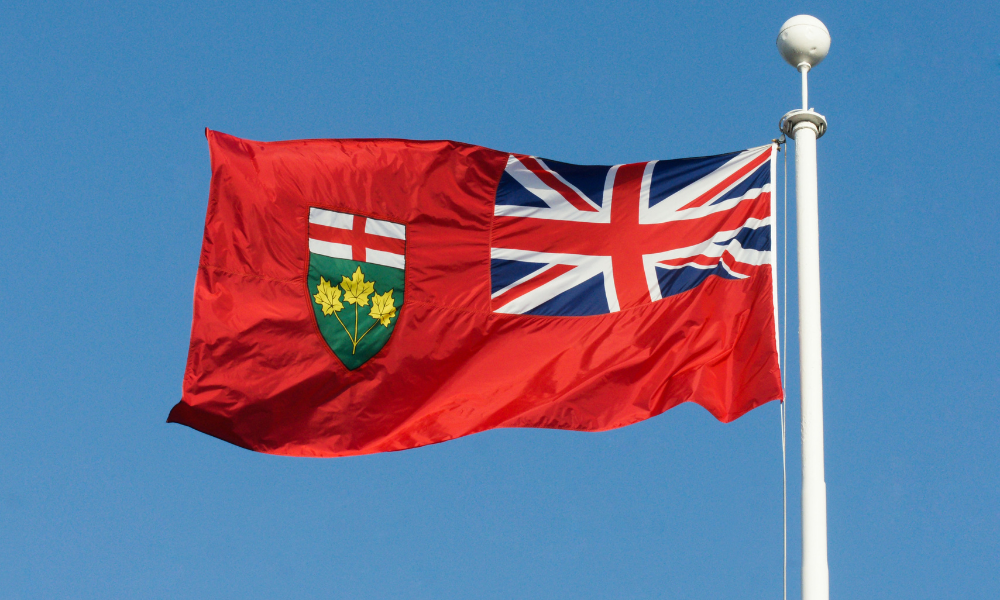
The OJC is reviewing sexual assault claims against regional senior justice Paul Currie

An Ontario Judicial Council panel has declined to keep the details of a sexual assault claim against an Ontario justice confidential and said it would not pause disciplinary proceedings against the justice while a related civil case is pending in superior court.
In a March 17th decision, the panel also agreed to ban the publication of the primary witness’s name or identifying information.
The case dates back to April 2023, when Lise Maisonneuve, former Ontario Court of Justice chief justice, informed the OJC that regional senior justice Paul Currie had been arrested for assault.
That complaint led to Currie's suspension with pay. However, in June of the same year, a prosecutor withdrew criminal charges against Currie after meeting with the complainant, concluding there was no reasonable prospect of conviction.
An OJC subcommittee investigated Maisonneuve’s complaint, which led the OJC to determine to hold a hearing on the case.
To conduct the hearing, the OJC hired independent counsel who prepared a hearing notice, which included a complaint letter and an appendix. The complaint letter refers to the criminal assault charges that the Crown had withdrawn, while the appendix details an allegation that Currie sexually and physically assaulted the primary witness in the case. This latter allegation resulted from the OJC subcommittee’s investigation.
The justice protested the hearing notice’s inclusion of the appendix and filed a motion to keep it confidential. He later amended the request to argue that only the complaint letter, not the appendix, should be attached to the hearing notice.
Currie also filed a motion to pause the proceedings until the resolution of a civil case he launched in September.
Meanwhile, the primary witness asked the panel to ban their name and any identifying information from appearing in the hearing notice.
At a hearing in March, Currie argued that the OJC panel did not have the jurisdiction to consider the sexual assault allegation that appears in the appendix to the hearing notice. Instead, he said the OJC panel only had the authority to consider the allegations in the complaint letter.
However, the OJC panel tossed out this argument. The panel said that under Currie’s interpretation of the law, “allegations of serious misconduct, which arise during the course of the OJC’s investigation, and which directly relate to the allegations in the letter of complaint, could not be considered by a hearing panel.”
Such an interpretation of the panel’s authority “would be contrary to the spirit and intent of the [Courts of Justice Act] and the OJC Procedures Document, as it would tend to weaken public confidence in the judge and in the administration of justice,” the panel said.
The panel declined to remove the appendix from the hearing notice, noting that OJC rules require hearing notices to contain “the particulars of the allegations against the judge.”
It also dismissed Currie’s bid to pause the proceedings until his case until the superior court had resolved a civil case with overlapping issues. According to the panel, Currie had not shown any exceptional circumstances that would warrant such a pause or how the proceedings would prejudice his civil case.
“The two proceedings are quite distinct,” the panel said. “Before us the only issue is whether the judge engaged in judicial misconduct, and if so, what disposition should follow from this finding.”
The panel granted the primary witness’s request for a publication ban to remove their name and identifying information from the appendix. While the principle of open courts requires transparency in the judicial system, the panel noted that the Courts of Justice Act includes an exception for OJC hearings, which is triggered when a complainant makes allegations of sexual misconduct or sexual harassment against a judge and asks for a publication ban.
Maisonneuve’s original complaint letter against Currie does not include sexual assault allegations. However, because the hearing will consider a sexual assault allegation against him, the panel opted to grant the witness’s publication ban request.
Currie’s hearing begins on April 14th.
Counsel retained by the OJC declined to comment on the case. Counsel for the other parties did not respond to requests for comment.